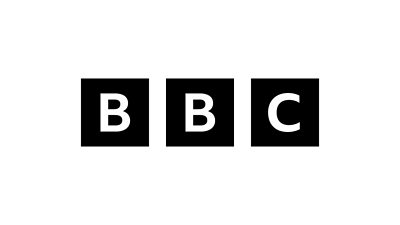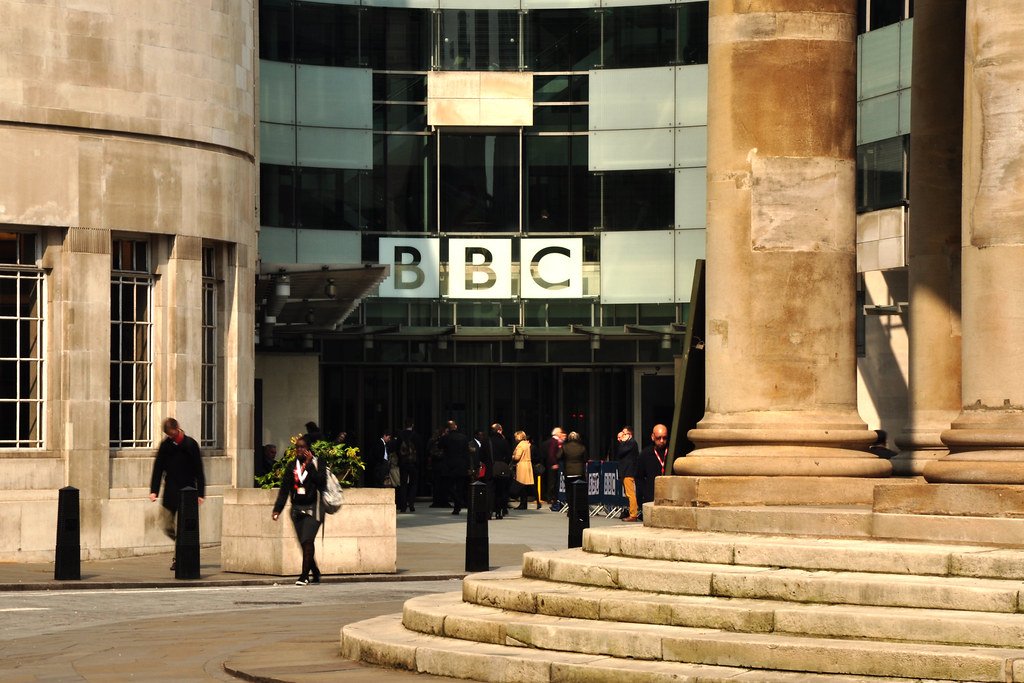The BBC stands as a significant figure in global media. Many recognize it for its trusted news and diverse content.
Founded in 1922, the British Broadcasting Corporation, or BBC, has evolved with the times. It offers TV, radio, and online services. Known for unbiased news, it impacts millions daily. From breaking news to documentaries, it covers a wide range of topics.
It also supports education and culture. Its programs entertain and inform people worldwide. It’s mission is clear: to enrich lives with quality content. This introduction sets the stage to explore it’s role and influence in the media world. Discover how it remains a trusted source today.
Historical Roots
The British Broadcasting Corporation, or BBC, stands as a symbol of reliable news and entertainment. Its historical roots are deeply intertwined with the evolution of broadcasting in the UK. This section delves into the origins and significant milestones of the BBC.
Early Beginnings
The BBC began its journey on October 18, 1922. It started as the British Broadcasting Company, formed by a group of leading wireless manufacturers. Its first broadcast occurred on November 14, 1922, from station 2LO in London.
In 1923, it made its first outside broadcast, featuring the British National Opera Company’s performance of “The Magic Flute.” By 1927, it became a public corporation, known as the British Broadcasting Corporation. This shift marked the beginning of its mission to inform, educate, and entertain the public.
Key Milestones
The BBC has achieved many significant milestones over the years. Here are a few notable ones:
| Year | Event |
|---|---|
| 1932 | Launch of the BBC Empire Service, now the World Service. |
| 1936 | Inauguration of the world’s first regular high-definition television service. |
| 1940 | Broadcasting during World War II, providing crucial news updates. |
| 1953 | Live broadcast of Queen Elizabeth II’s coronation. |
| 1967 | Launch of BBC Radio 1, bringing popular music to the masses. |
| 1997 | Introduction of the BBC News website, marking its digital presence. |
| 2007 | Launch of BBC iPlayer, revolutionizing how audiences consume content. |
These milestones reflect the BBC’s commitment to innovation and public service. Each step showcases its role in shaping modern broadcasting.

Credit: www.bbc.co.uk
Global Reach
The BBC’s Global Reach is unparalleled. It connects millions worldwide with news, culture, and information. This extensive reach is a testament to its dedication to delivering quality content across the globe.
International Services
The BBC operates many international services to connect with diverse audiences. It offers news and entertainment through its World Service and BBC Worldwide. These services aim to inform and educate people globally.
The BBC World Service is available in over 40 languages, ensuring accessibility to a wide range of listeners. It broadcasts news, documentaries, and discussions that reflect global issues.
Language Diversity
Language diversity is key to the BBC’s mission. By offering content in multiple languages, it ensures that language barriers do not hinder access to information. This commitment to language diversity helps it reach non-English speakers effectively.
Here is a table summarizing the languages supported by the BBC World Service:
| Language | Region |
|---|---|
| Arabic | Middle East |
| Chinese | Asia |
| Spanish | Latin America |
| Swahili | Africa |
This table showcases just a few of the languages that the BBC supports. Each language service is tailored to meet the needs of its audience, ensuring relevant and engaging content.
- Over 40 languages broadcasted.
- Content tailored for each region.
- Accessible through radio, TV, and online platforms.
This approach allows it to maintain its position as a trusted source of information worldwide. It ensures that people from different linguistic backgrounds can access the content they need.
Content Strategy
The BBC, a global leader in broadcasting, has a robust content strategy. This strategy aims to provide diverse and high-quality content to its audience. The focus is on delivering accurate news and compelling entertainment. Let’s delve deeper into these key aspects of their content strategy.
News Coverage
The BBC is renowned for its comprehensive news coverage. It ensures timely and accurate news reporting. The focus is on delivering facts without bias. Reporters cover stories from around the world, ensuring a global perspective. It also prioritizes in-depth analysis and expert opinions. This commitment helps maintain trust and credibility.
Entertainment Programs
The BBC offers a wide range of entertainment programs. From dramas to comedies, there is something for everyone. Popular shows like “Doctor Who” and “Sherlock” have a global fanbase. It also invests in new talent and innovative ideas. This approach keeps the content fresh and engaging. Documentaries and reality shows also add to the variety. The goal is to entertain while also informing and educating.

Credit: www.societyofeditors.org
Technological Innovation
The British Broadcasting Corporation, commonly known as the BBC, has been at the forefront of technological innovation in the media industry. This section explores how it has embraced new technology to enhance its services and reach a wider audience.
Broadcasting Evolution
The BBC began its journey with radio broadcasts. It quickly adapted to television, becoming a pioneer in the field. The organization introduced color TV in the 1960s, a significant milestone. Over the years, it has continued to innovate in broadcasting technology.
In the digital age, it has embraced high-definition (HD) and ultra-high-definition (UHD) broadcasts. These advancements ensure viewers get the best visual experience. It also uses advanced sound technology to enhance audio quality.
Digital Platforms
The BBC has successfully transitioned to digital platforms. It launched the BBC iPlayer in 2007, offering on-demand streaming of its programs. The platform has become a key part of the BBC’s digital strategy.
It also maintains a strong presence on social media. It uses platforms like YouTube, Facebook, and Twitter to reach a global audience. The BBC News website is one of the most visited news sites in the world.
Here are some of the key features of the BBC’s digital platforms:
- On-demand streaming on BBC iPlayer
- Live streaming of TV and radio channels
- Extensive news coverage on the BBC News website
- Interactive social media presence
These platforms ensure the BBC remains relevant in the digital age.
Cultural Impact
The BBC has had a significant cultural impact worldwide. Its influence extends beyond news and entertainment. It shapes societal norms, values, and perspectives. Let’s explore its influence on society and its efforts towards representation and diversity.
Influence On Society
The BBC has shaped public opinion for decades. It provides trusted information on current events. People rely on it for accurate news. Its programs educate and inform. Documentaries, dramas, and series reflect real-life issues. Viewers gain insights into different cultures and lifestyles. It promotes understanding and tolerance. It plays a vital role in educating the public.
Representation And Diversity
The BBC is committed to representation. It strives to reflect the diversity of society. Diverse voices and faces are present in its programs. This ensures everyone feels seen and heard. Inclusive content fosters a sense of belonging. It tackles issues of race, gender, and identity. It provides a platform for underrepresented groups. This commitment to diversity enriches the viewer experience.
Funding And Governance
The British Broadcasting Corporation (BBC) is one of the world’s leading public service broadcasters. Its operations are guided by a distinct funding and governance model. This ensures its independence and high-quality content. Understanding the BBC’s funding and governance provides insight into its unique position in the media landscape.
License Fee Model
The BBC is primarily funded through a license fee. Every household in the UK that watches or records live TV broadcasts must pay this fee. This fee is set by the government and collected annually. The current fee is £159 per year for a color TV license. This funding model ensures that it can operate without commercial pressures.
Here are some key points about the license fee:
- It provides the majority of the BBC’s income.
- It supports a wide range of services, including TV, radio, and online content.
- It helps maintain the BBC’s independence from commercial and political influences.
Regulatory Framework
The BBC operates under a regulatory framework set by the UK government. This framework outlines the BBC’s responsibilities and ensures its accountability. Ofcom, the UK’s communications regulator, oversees the BBC’s activities. This includes ensuring that it adheres to its public service remit.
Key aspects of the regulatory framework include:
- Editorial Standards: It must maintain high editorial standards, providing accurate and impartial news.
- Content Requirements: It must offer diverse content that reflects the UK’s culture and interests.
- Financial Oversight: It’s finances are closely monitored to ensure efficient use of the license fee.
The funding and governance of the BBC are designed to uphold its mission. This ensures the delivery of quality, unbiased content to audiences in the UK and around the world.
Challenges And Criticisms
The BBC, a global media giant, faces several challenges and criticisms. Despite its long-standing reputation, it struggles to meet modern demands. Here, we explore the main issues it encounters.
Political Pressure
The BBC often deals with political pressure. Politicians and governments try to influence its content. This affects its impartiality. Many accuse the BBC of bias. Both left and right-wing groups criticize it. These accusations harm its credibility. It must balance these pressures while maintaining trust.
Competition And Market Changes
Competition in the media industry is fierce. New platforms and technologies emerge rapidly. Streaming services, like Netflix and Amazon, attract viewers. Social media also diverts audience attention. These changes reduce the BBC’s market share. It must adapt to survive. Investing in digital content and innovation is crucial. Yet, this requires significant resources. Balancing tradition and modernity is a constant challenge for the BBC.
Future Prospects
The BBC has always been at the forefront of broadcasting. The future holds many opportunities and challenges for this iconic institution. Let’s explore the future prospects for the BBC.
Adaptation To Change
Change is constant in the world of media. It must adapt to new technologies. Streaming services are gaining popularity. Traditional TV viewership is declining. It has embraced this shift. They have launched their own streaming service, BBC iPlayer. This allows viewers to watch shows anytime.
Another area of change is news delivery. People now prefer getting news online. It has a strong online presence. Their website and mobile app offer the latest news. This keeps them relevant in the digital age.
Emerging Markets
The BBC is exploring new markets. They aim to reach a global audience. Emerging markets offer growth opportunities. Countries in Asia and Africa have growing middle classes. These people want quality content. The BBC can provide that.
Localization is key. It tailors content for different regions. They offer news in various languages. This makes their content accessible. Partnerships with local broadcasters also help. These collaborations expand their reach.
Investing in emerging markets is a smart move. It ensures the BBC remains a global leader in media.
FAQs
What Is The BBC?
The BBC, or British Broadcasting Corporation, is the UK’s national broadcaster. It provides television, radio, and online content.
When Was The BBC Founded?
The BBC was founded on October 18, 1922. It has since grown into a leading global media organization.
What Services Does The BBC Offer?
The BBC offers TV channels, radio stations, and online content. It also provides news, entertainment, and educational programming.
How Is The BBC Funded?
The BBC is primarily funded by the UK TV license fee. This fee is paid by households watching live TV or BBC iPlayer.
Conclusion
The BBC remains a trusted source of news worldwide. Its commitment to accurate reporting is unmatched. The variety of programs caters to diverse interests. Viewers can always find something engaging. This rich history and consistent quality make the BBC unique.
Stay informed with the BBC. It’s a reliable choice for news and entertainment.








